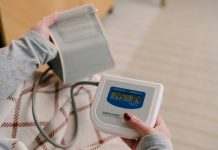
In a significant move by the American Heart Association (AHA), doctors are being urged to prescribe exercise to adults with mildly high blood pressure or cholesterol.
This proactive approach could benefit millions of Americans, promoting heart health through increased physical activity.
About 21% of U.S. adults (approximately 53 million) have slightly elevated blood pressure, with systolic readings between 120-139 mmHg or diastolic between 80-89 mmHg.
Similarly, around 28% (about 71 million) have mildly high cholesterol levels, indicated by LDL cholesterol scores above 70 mg/dL.
Lifestyle Changes as a Primary Treatment
Current Guidelines: For those with slightly high blood pressure or cholesterol but low heart disease or stroke risk, lifestyle modifications are recommended. These include increased physical activity, diet improvements, quitting smoking, and moderating alcohol consumption.
Doctor’s Role: The AHA advises that physicians should regularly discuss physical activity with patients, assist them in finding enjoyable activities, and provide connections to supportive resources like health coaches and community centers.
The Power of Physical Activity
Impressive Benefits: Regular exercise can reduce systolic and diastolic blood pressure by an average of 3-4 mmHg and lower LDL cholesterol by 3-6 mg/dL.
Reduced Disease Risk: Active individuals have a 21% lower risk of developing cardiovascular disease and a 36% lower risk of cardiovascular-related death compared to inactive people.
Recommended Exercise Levels
Federal Guidelines: It’s suggested that adults engage in 150 minutes of moderate-intensity or 75 minutes of vigorous aerobic activity weekly, coupled with at least two strength training sessions.
Small Steps Count: Starting with just five to ten additional minutes of daily activity can have significant health benefits.
Key Takeaways
The AHA’s recommendation for exercise prescriptions marks a crucial step in preventive healthcare. By emphasizing physical activity, doctors can play a pivotal role in guiding patients towards a healthier lifestyle, effectively managing blood pressure and cholesterol levels.
This approach not only addresses individual health but also tackles broader public health concerns related to heart diseases.
If you care about blood pressure, please read studies about how diets could help lower high blood pressure, and 3 grams of omega-3s a day keep high blood pressure at bay.
For more information about nutrition, please see recent studies that beetroot juice could help reduce blood pressure, and results showing cinnamon could help lower high blood pressure.
Copyright © 2023 Knowridge Science Report. All rights reserved.



